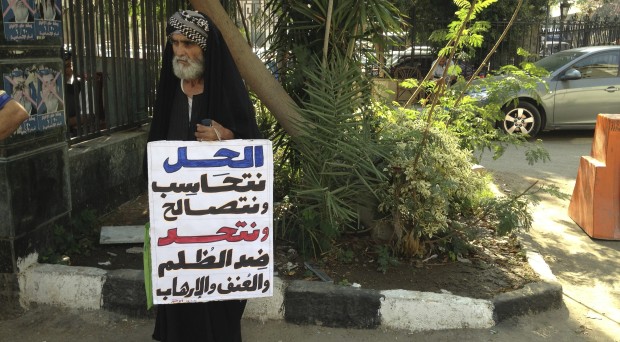
ALEXANDRIA–From outside the country, Egyptian public universities are often viewed as dusty, ossified institutions, locked in the last century—maybe even the century before that.
But at a recent meeting of Egyptian university administrators held here, the desire to move boldly into the future was strikingly evident—even if the path for movement is not yet clear.
“There is a gap between what we dream and where we are,” said Osama Ibrahim, the president of Alexandria University. He acknowledged that the country’s laws and regulations governing universities, many of them dating back to the 1970’s, burn up his time. He is stuck signing purchase orders for the smallest of items, toilet paper even, pulling his time away from what he wants to do—reinvent his institution.
“Our brains are exhausted by urgent things,” said Ali Shams El Din, the president of Benha University. Ismail I. Gomaa, a professor of accounting at Alexandria University and a government advisor, built upon that thought: “The urgent displaces the important.”
The participants at the meeting, sponsored by Al-Fanar Media with the hope of spurring discussion about the governance of public universities, acknowledged that since the 2011 revolution, education has often been a low priority in public discussion. But those present wondered if now is the time to bring it back into focus. With the country inching toward democracy, many believe the laws that govern universities are ripe for reconsideration. “If we are rewriting the constitution, it is an ideal time to challenge the regulations that we all know are disastrous,” said Gomaa.

The university administrators met at the Bibliotheca Alexandrina, the new library of Alexandria, itself an Egyptian landmark of knowledge, with 1.5 million volumes. The participants in the meeting knew all of the latest educational buzzwords—MOOCS, lifelong education, flipped learning (online lectures followed by classroom discussion)—even if not yet able to put such principles into action. Some administrators were even willing to raise the idea of requiring students to pay tuition, a politically charged topic in Egypt.
But if enthusiasm for a different future was plentiful, the participants acknowledged it’s hard to make quick turns when leading a big institution, much like the clichéd metaphor about steering a battleship. Alexandria University, where many of those at the meeting came from, has 170,000 students.
Complicating matters for administrators, the government has had its hands in the pockets of Egyptian universities and other Egyptian cultural institutions. Apparently in seeking to remedy the country’s deficit, the finance ministry has taken money from institutional endowments, even taking privately raised funds and donations made to the institutions from foreign governments. Little discussed publicly, I heard about these actions from four separate sources. It’s not clear if this activity will come to stop under the current government. Such actions discourage university administrators from seeking alternatives to government funding.
In Cairo, I caught other glimpses of Egypt through the lens of education. One of the highlights of my visit was a trip to the Shoura Council, the upper house of Egyptian Parliament. I went in past a gated entry where an elderly man, Mohamed Atian, known as the “father of the revolutionaries” comes and stands with a cardboard sign. It said in Arabic “The solution is accountability, reconciliation; to get united against injustice, violence, and terrorism.” Legend has it that Atian has stood at key spots in Cairo, such as Tahrir Square or the council gates, every day since the revolution began.
After some time spent in a guardhouse, waiting for approval to enter, I was escorted past a sandbagged tank, a reminder that Egypt’s relative peace is still an uneasy one. Hoda Elsadda, a professor of English and comparative literature at Cairo University, a “researcher activist” working on behalf of women, and a believer that education is a human right, met me in an upstairs room. One of the 50 people drafting a new constitution, she is the coordinator of a “rights and freedoms” committee. Over coffee, she and a colleague said they are determined to finish their job by a December 3 deadline, paving the way for an up-or-down referendum and, later in the spring, elections for new leaders.
This perspective, seeing a woman working long days to try to make sure Egypt lives up to its democratic promise, is often missing in the foreign press. There’s plenty of risk that Egypt will descend again into corruption and repression, if it hasn’t already partly done that, but I got an alternative view.
Also in Cairo, I talked to Hisham Kassem, a prominent Egyptian publisher who has wielded a journalistic cudgel in the face of power for a long time. “The two major deficiencies in the region are freedom and education,” he said. The freedom explosion has begun, he said, but the education revolution is lagging badly. Without education kicking in, regional security is at risk. “If things go wrong, we will all be begging for the days of the dictators who kept things under the lid,” he said.
Amen, I thought. I want to carry that message to all outside the region who seek to abandon it, and all of those inside the region who have forgotten about the importance of education.






